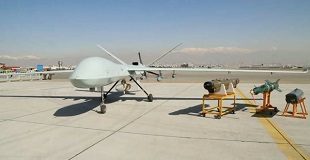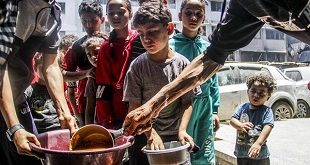
Moscow, Russia | AFP | In the middle of their bedroom, Bolshoi ballet dancers Margarita Shrainer and Igor Tsvirko have placed a linoleum mat and a barre.
Since the start of the lockdown, the couple, both soloists in the legendary troupe, have largely used their own initiative to keep up their dance skills at home.
The Bolshoi held its first online classes only this week, more than a month after lockdown began.
Yet Tsvirko and Shrainer still look toned and Tsvirko pulls at his waistband.
“I don’t think I’ve got fat, that’s the main thing,” says the 30-year-old dancer, a leading soloist at the Bolshoi who has performed lead roles in “Ivan the Terrible” and “Nureyev”.
Shrainer, a first soloist who has performed major roles in “Coppelia” and “Carmen Suite”, massages her leg with a tennis ball and moves into the splits.
Together for more than a year, they are living in a studio flat owned by the theatre.
The same block is home to several other dancers and it was outside this building that the notorious acid attack on then-artistic director Sergei Filin took place in 2013.
Their Zoom class is led by a teacher doing steps in his bedroom to a piano accompaniment.
There are leaps and energetic dance routines. At the end, Shrainer sits with her legs stretched out in front of her.
“We got some cardio,” the 26-year-old says.
Afterwards they goof around, Tsvirko performing lifts with Shrainer.
“As for dancing as a duo, yes we probably are lucky that we can keep up this form,” Shrainer says.
The dancers had to find their own ways to create a lockdown routine and find equipment.
– ‘Only stronger’ –
As lockdown began, “the Bolshoi gave very important and worthwhile advice: keep yourself fit and find a way to do ballet in self-isolation,” says Tsvirko.
“That’s what we performers are doing: finding linoleum, barres.”
Normally dancers do not train at home so do not have such equipment, Tsvirko says.
As they spoke, the theatre brought round rolls of black dance linoleum, a special type with a strong grip.
Even their ballet shoes are “wearing out” as they cannot collect new supplies, Tsvirko says.
The theatre’s general director Vladimir Urin told Kommersant daily in early April that it was unfeasible to hold online classes for the 250-strong troupe.
Tsvirko suggests the management did not initially see how online video conferences could be used.
“I think it’s primarily due to the fact that some people weren’t familiar with technical innovations that exist now.”
General director Urin has said his “good” scenario is for the theatre to reopen for the new season in September and Tsvirko says he anticipates such a timeframe.
“I doubt anyone will start working before September or anything will open so I’ve steeled myself for such long holidays.”
Meanwhile both are developing hobbies.
Tsvirko is learning to play the guitar while Shrainer has got into cooking, pilates and learning English.
She says she misses the bustle of the theatre: “There’s not the usual pace, rhythm, constant rehearsals, meeting colleagues, sitting in the cafeteria.”
Tsvirko says he misses the anticipation ahead of going on stage.
“That atmosphere when you come in and warm up and you talk to your favourite wardrobe masters, your makeup artists — that process of going in, the slight butterflies, that’s probably what I miss most.”
Going back will not be easy, they acknowledge.
“After such a long time of strict precautionary measures, how will men even shake hands? I think everyone will be keeping their distance a bit,” predicts Shrainer.
Physically there will also be “a tough comeback period for the performers, of regaining strength,” she says.
Theatre-goers will be changed too, says Tsvirko. “Audiences will definitely observe precautions: probably they’ll sit in masks and gloves.”
Beyond the virus, the economic realities have changed, he adds.
“Russia for sure is also in an economic crisis, like the whole world basically, so the question is the cost of tickets.”
Urin told Kommersant that he fears opening later than September could mean financial disaster due to planned premieres.
But the dancers are ultimately optimistic the revered troupe will return with renewed energy.
“I hope people won’t get weaker over this time but only stronger,” says Tsvirko.
 The Independent Uganda: You get the Truth we Pay the Price
The Independent Uganda: You get the Truth we Pay the Price



